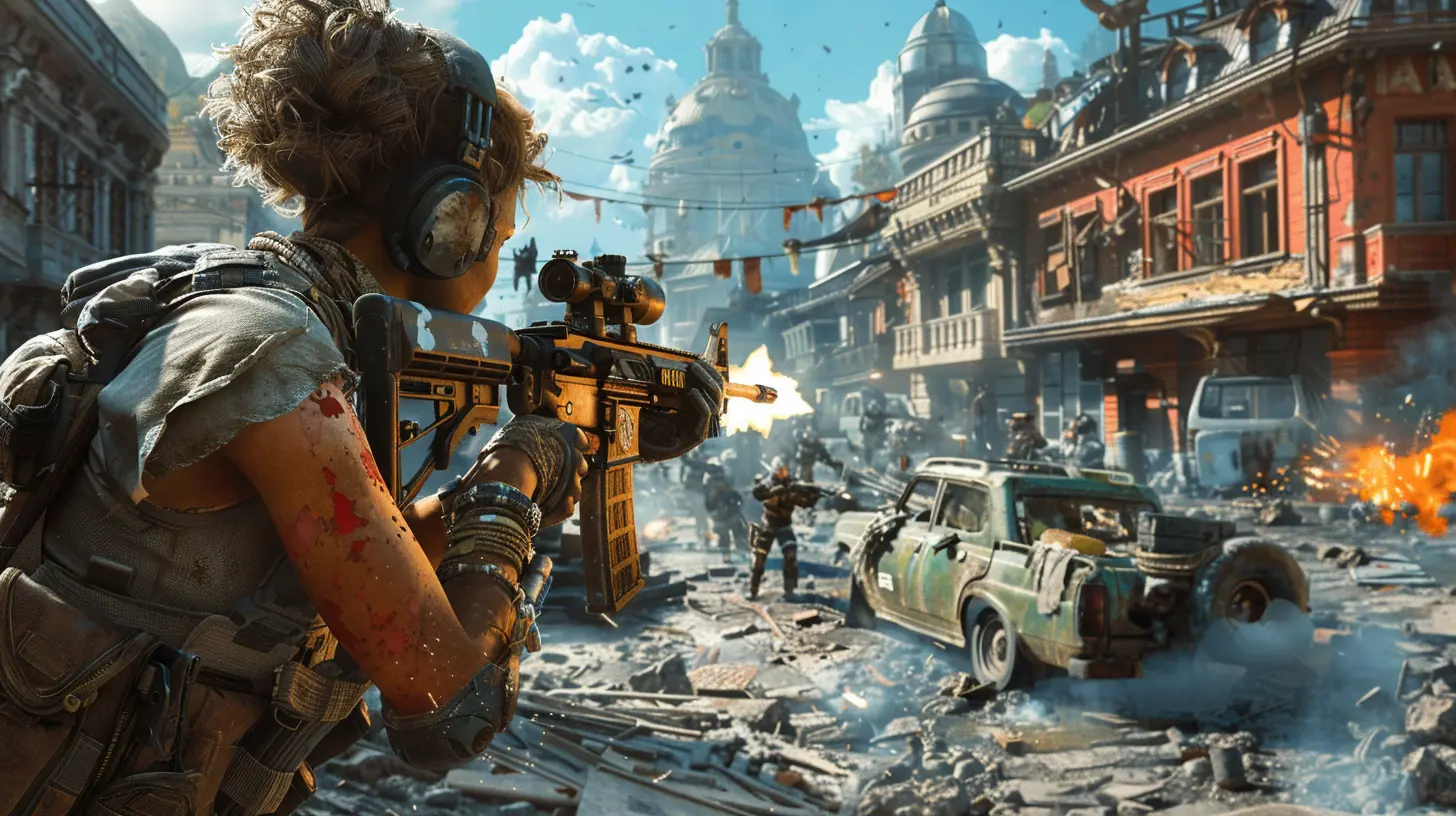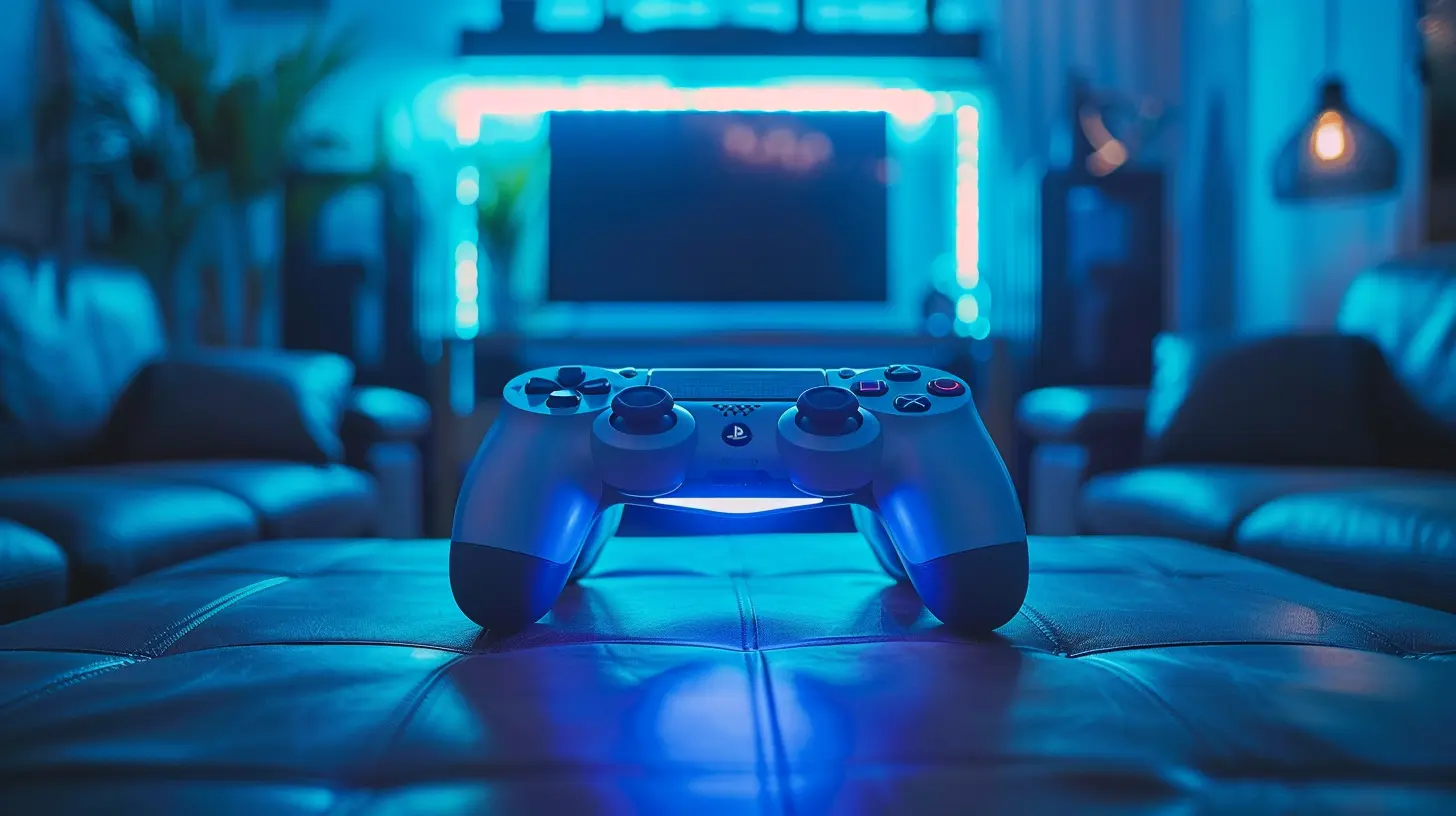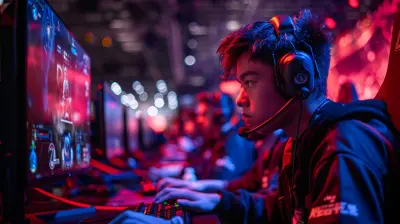Crossing Boundaries: How Platforms Are Shaping the War on Console Exclusivity
19 October 2025
Console wars might just be as old as gaming itself. No matter which side you're on—PlayStation, Xbox, Nintendo, or now even PC—one thing is clear: exclusivity has always been the ultimate weapon in the battle of gaming platforms. It's the secret sauce that keeps players loyal and sales charts rising. But here's the kicker: the war on console exclusivity isn't what it used to be. In fact, the boundaries are starting to blur, and gaming as we know it is evolving.
Think about it. Once upon a time, the idea of playing a PlayStation-exclusive title on an Xbox or PC was pure fantasy. That was the entire point of exclusives! Yet today, we're seeing games hop across platforms like they're on a multi-city tour. So, what changed? Why are platform boundaries breaking down, and how is this shift reshaping the gaming industry? Let's dive into it.
The Rise of Console Exclusivity: A Quick History
To understand what’s happening now, we need to rewind a bit. Back in the day, console exclusives weren’t just important—they were the lifeblood of a platform. If you wanted to experience "Halo," you had to own an Xbox. Craving "God of War"? A PlayStation was a must. Nintendo? Forget it; they’ve always played their own game with franchises like "Mario" and "Zelda."Exclusives gave platforms their identity. They weren’t just games; they were reasons to buy the hardware. It was like choosing between Coke and Pepsi, except you couldn’t drink both without owning two fridges. Platforms knew this and doubled down on exclusive content, locking in loyal gamers for years.
The Shift: Why Exclusivity Is Losing Its Grip
So, what’s changed? Why are we seeing once-exclusive titles like "Horizon Zero Dawn" and "God of War" (2018) pop up on PC? Why is Xbox so keen on putting their games into players' hands, whether they're on PC, console, or even mobile via Game Pass? The answer is simple: times are changing, and so are gamers.Here are a few key reasons exclusivity is losing its edge:
1. The Need for Broader Audiences
Gaming is no longer niche. It's a global, multi-billion-dollar industry with an audience bigger than Hollywood's. Publishers and developers want their games in as many hands as possible, and restricting a title to one platform limits its reach. Think about it—why cater to a single console's audience when you can sell to everyone?PC ports of console exclusives are a perfect example. Publishers like Sony have realized that bringing their blockbuster games to PC opens up entirely new markets. More players mean more revenue. It’s simple math.
2. Subscription Services Are Changing the Game
Subscription-based services like Xbox Game Pass, PlayStation Plus, and Nvidia GeForce Now are shaking things up big time. These platforms aren’t about one-off sales; they’re about building ecosystems. To succeed, they need variety and lots of it.Xbox, for instance, has been aggressively pushing Game Pass as the "Netflix of gaming." And what makes a subscription service valuable? Choice. Which is why Xbox is happily putting its exclusives, like "Halo Infinite" and "Forza Horizon 5," onto PC and even mobile. It’s not about selling consoles anymore—it’s about getting players into their ecosystem, no matter where they play.
3. Cross-Play and Cross-Save Demands
Gamers are no longer satisfied with being siloed by their hardware. Modern players want flexibility. They want to start a game on one device and continue it on another. Cross-play, cross-save, and cloud gaming are blurring the lines between platforms, making exclusivity feel like a relic of the past.For example, games like "Fortnite," "Call of Duty: Warzone," and "Minecraft" already let players game together regardless of their device. Imagine trying to sell exclusivity in a world where every gamer just wants to play with their friends, no matter the console. It’s a tough sell.
The Role of Developers in Breaking Boundaries
Here’s the thing: developers aren’t exactly thrilled about exclusivity either. Sure, platform deals can provide funding and marketing support, but they also come with limitations. A developer naturally wants as many people as possible to experience their game. Being locked into a single platform can feel like boxing up their creativity.Take CD Projekt Red, the studio behind "The Witcher 3" and "Cyberpunk 2077." These critically acclaimed games were developed with a multi-platform approach from the start. The result? They reached millions of players worldwide without being tied down to one console.
Even Sony, a company known for its fiercely loyal PlayStation audience, has started embracing this trend. Titles like "Uncharted: Legacy of Thieves Collection" and "Spider-Man: Miles Morales" are finding new homes on PC. Is this Sony admitting that exclusivity has its limits? Possibly. But it’s more likely a strategic move to engage with the massive PC gaming community.
The Rise of Cloud Gaming: The Final Nail in the Exclusivity Coffin?
If there’s one thing that could completely obliterate the concept of console exclusivity, it’s cloud gaming. Services like Xbox Cloud Gaming (formerly xCloud), Google Stadia (RIP, though), and Nvidia GeForce Now are rewriting the rules of gaming by letting players stream games instead of downloading them.Here’s why that matters: cloud gaming doesn’t care about hardware. Your console, your PC, your phone—it’s all the same to the cloud. If platforms no longer rely on hardware sales, the need for exclusivity diminishes further. Gaming could shift from being tied to specific consoles to being about who offers the best experience, content, and value.
Of course, we’re not there yet. Cloud gaming is still in its early days, grappling with issues like latency and internet speed. But the future is clear. As technology improves, the walls between platforms will crumble even more.
What Does This Mean for Gamers?
So, where does all this leave us as gamers? Honestly, in a pretty exciting spot. The slow fade of exclusivity means more options, more flexibility, and more opportunities to enjoy amazing games. It’s a win-win.Sure, purists might argue that exclusivity drives innovation by giving platforms something unique to compete over. And they’re not wrong—exclusives can still push the industry forward. Just look at how single-player experiences like "The Last of Us" or "Breath of the Wild" have raised the bar for storytelling and open-world design. But the truth is, those innovations can still happen without locking players into one piece of hardware.
Final Thoughts: A New Era of Gaming
The war on console exclusivity is far from over, but the battlefield is definitely changing. Platforms aren’t just competing for hardware sales anymore; they’re competing for ecosystems, player engagement, and new ways to deliver experiences. And in this new era, exclusivity is starting to feel like an outdated strategy.Will there always be some exclusives? Of course. Nintendo isn’t about to share "Mario" with anyone, and Sony’s blockbuster franchises aren’t going anywhere. But the days of rigid platform boundaries are numbered. And as gamers, we should embrace this change. After all, the more accessible gaming becomes, the better it is for everyone.
So, grab your controller, keyboard, or whatever you game on. The future of gaming is here, and it’s looking a lot less exclusive.
all images in this post were generated using AI tools
Category:
Gaming PlatformsAuthor:

Audrey McGhee
Discussion
rate this article
2 comments
Ethan Reynolds
Exciting times for gamers! As platforms evolve and boundaries blur, we're witnessing a new era of accessibility and collaboration. Let’s celebrate the merging worlds that unite us all through gaming!
January 28, 2026 at 4:33 PM

Audrey McGhee
Absolutely! The evolution of gaming platforms is indeed fostering a more inclusive and collaborative environment that benefits all gamers. Exciting times ahead!
Ardent McFarlane
This article offers a timely exploration of how cross-platform capabilities are reshaping the gaming landscape. It highlights the impact on player accessibility and community building, emphasizing that inclusivity may soon become the standard in gaming experiences.
October 19, 2025 at 4:18 PM

Audrey McGhee
Thank you for your insightful comment! I'm glad you found the article's exploration of cross-platform capabilities and inclusivity in gaming valuable.


